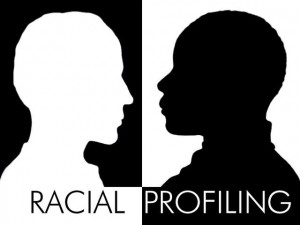(ThyBlackMan.com) The racial discord that has gripped the nation in cities from Ferguson to Cleveland has resurrected an old term. People are once again talking about “bias.”
Bias in policing, economic and health disparities and social policy are topical in the media, corporate dining halls and on college campuses. Yet, a review of the literature and media coverage suggests insufficient understanding of the nuances of racial bias.
While some researchers contend bias can be either negative or positive, I disagree. Rather, I see bias as a negative supposition or attitude toward someone or something. The opposite of bias is “preference” — favoritism toward someone or something.
• Explicit bias is overt intolerance based on social, religious or political views that cause some people antipathy toward others. Abortion and gay rights historically have been areas rife with explicit bias in which people hold fixed views of right and wrong. Recent cases of businesses refusing to provide services for gay couples or churches refusing to marry them are forms of explicit bias resulting in discrimination.
• Implicit bias is an understood, implied and otherwise unspoken prejudice. While implicit bias can and does operate at the level of individual actors, it often occurs at the systems level through practices and policies applied to classifications of people. Data indicate implicit racial bias is systemic in hiring and promotion of minorities across many industries; policing and justice; housing; media coverage; and local, state and federal policies toward urban America, including disproportionate public school funding, to name a  few. So too, implicit bias occurs when protestors are called ‘thugs’ by politicians and media, when minorities are followed through stores as presumptive thieves by security guards, and when women are paid less than men for the same job and performance.
few. So too, implicit bias occurs when protestors are called ‘thugs’ by politicians and media, when minorities are followed through stores as presumptive thieves by security guards, and when women are paid less than men for the same job and performance.
• Unconscious bias is prejudice born from personal experiences, perceptions and attitudes that is unrecognized by the perpetrator. In this sense, unconscious bias is a byproduct of experience in which an absence of clear prejudicial intention nonetheless results in bigotry. Less about right and wrong than intolerant perspectives, unconscious bias occurs at the level of individual agency rather than systems, as people hold views that inform systems, whose biases are either explicit or implicit.
• Internalized bias is an acceptance of external bias by those against whom it is perpetrated. It is a belief in the validity of one’s own degradation — a submission to negative messages about oneself, such as when a child is told that he’s no good and then comes to believe in that assessment of his value. Internalized bias is a form of self-hatred that can extend to hatred of one’s race, family, social groups or national identity.
• Externalized bias is the externalization of hate onto the systems, tenets and actors of one’s perceived oppression. Operating on the fringe of society, externalized bias is associated with mental illness, rage, substance abuse and violence (see “Institutionalized Racism: National Security Threat and Mental Health Crisis” in The Huffington Post). Cases of externalized bias include homegrown terrorists, violent extremists abroad, and some whose intensity of disagreement with their government is deeply hostile.
Racial bias advances inequality. While there are no absolute remedies, there are some best practices.
1. Avoid presuppositions — unfounded or misinformed assumptions that unfairly categorize people and circumstances.
2. Examine your preferences in light of your actions to ascertain if they are harmful to others. For instance, if your preference for tall people disadvantages short people, then your preference is a bias. Work to overcome it.
3. Always ask, what if my perspectives or actions pertained to someone I love or to me? Would they be okay? How would I fix them?
4. Seek advice from the people who are affected. Be open to sincere feedback.
5. Examine honestly your organization’s policies and practices to unmask presuppositions that may lead to discrimination and other detrimental effects, and have the courage to change them.
Whether in business or personal life, racial bias separates people from their possibilities, organizations from the causes of equality and justice, and society from the benefits of true inclusion. It is incumbent upon each of us to eliminate racial bias where we find it — in our lives, our homes, our workplaces, and anywhere we encounter it.
Written By John Fitzgerald Gates
Official website; http://www.twitter.com/johnfgates

















Leave a Reply